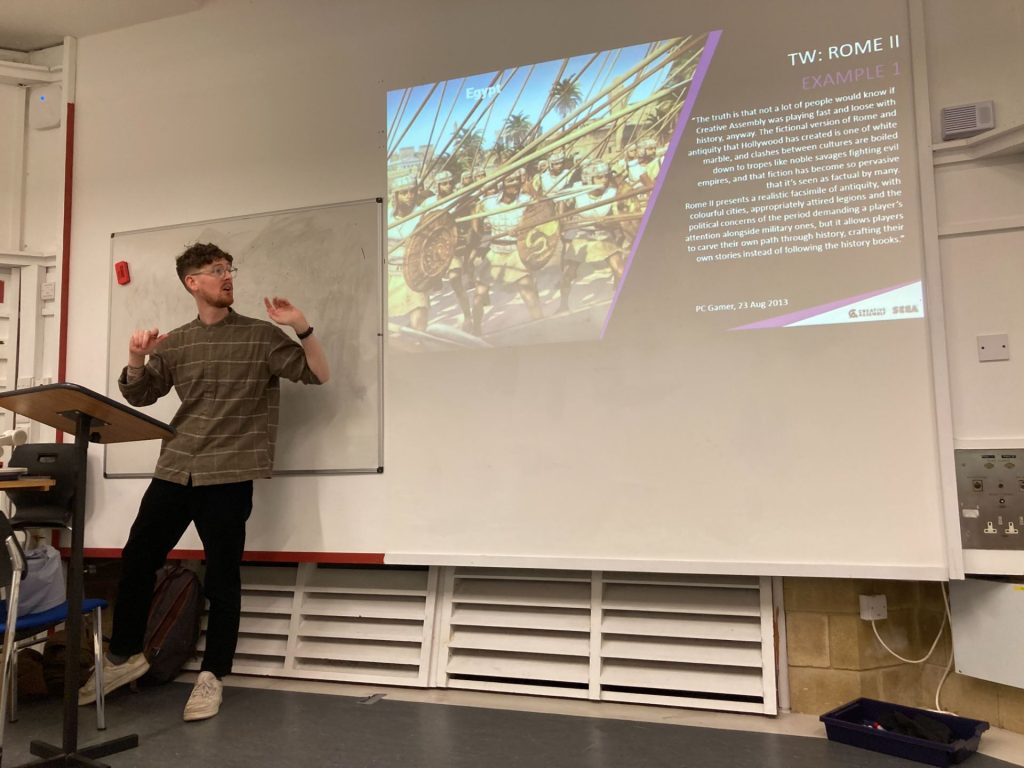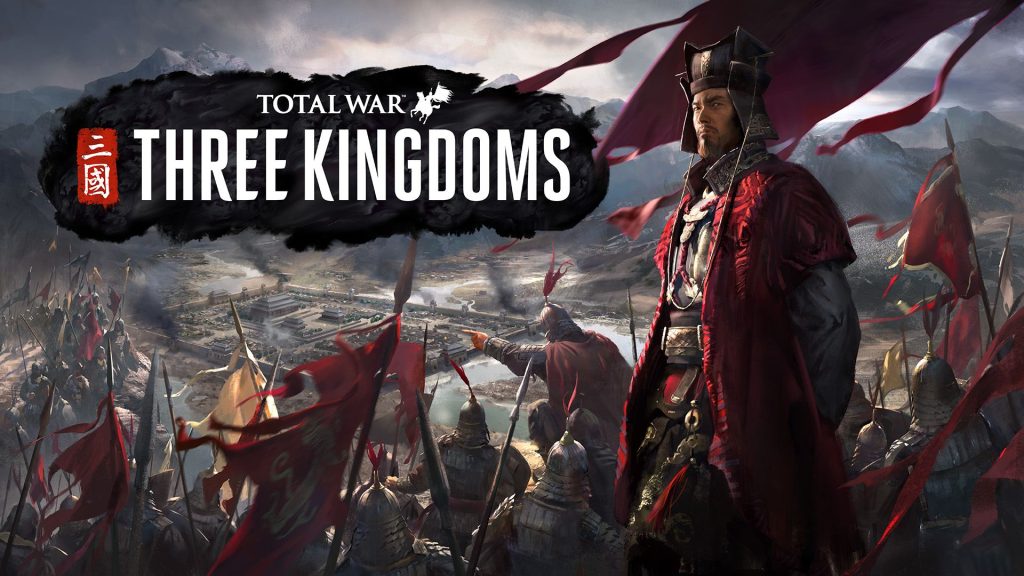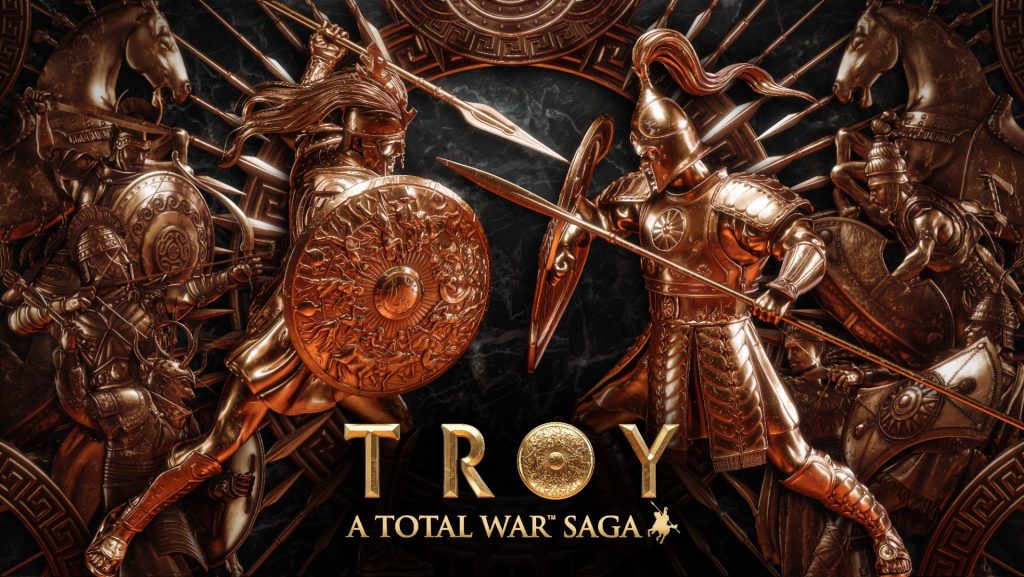On Wednesday 26 April, we had the pleasure of hosting Luke Holmes, Senior Game Designer from Creative Assembly, the multi-award winning BAFTA UK games studio. Luke came to the Lab to talk about ‘The Quest for Authenticity in Historical Games‘.
Prior to joining the games industry, Luke spent almost 10 years working in the museum and heritage sector. Playing with history has been his lifelong passion, incorporating games into museum exhibitions, and now designing the battles for historical Total War games at Creative Assembly. Luke also has a unique connection with the University of Bristol, having studied for an MA in History with a dissertation on ‘Video Games as Public History’, which was later adapted and published, as well as the City of Bristol, having worked at the SS Great Britain.

Drawing on this rich and varied background, Luke introduced the unique offering of the Total War series. He demonstrated how the series allows for a layered historical perspective, which operates at the level of cartography all the way down to individualized soldiers in battle, and described how this enables the player to connect with their actions at different stages within the game. Luke then went on to outline two key academic frameworks for analyzing history in games. Significantly, he suggested that such frameworks could be used to consciously develop historical games.

Luke began with Salvati and Bullinger’s concept of ‘selective authenticity’, which examines how aspects of historical representation are determined by genre and audience expectation. Using examples from Total War and other historical games, such as Assassin’s Creed Odyssey (Ubisoft, 2018), Luke explored how selective authenticity enables the designer to construct a ‘hall of fame’ of historical references in order to engage the player. However, this can lead to problematic representations, and so Luke introduced Jeremiah McCall’s Historical Problem Space Framework. This tool, Luke argued, could be used to think through the elements that might go into a historical game and whether they reflect the choices that historical agents might have made. He concluded that the HPS framework is a helpful check when it comes to designing historical games, while also useful in terms of opening up new mechanics.
Luke’s stimulating talk generated a fantastic Q&A, covering topics ranging from game design to the role of history in games. Our sincere thanks to Luke and Creative Assembly for helping us to arrange this industry lecture. If you would like to read more on the topic, check out the interview between Luke and Jeremiah McCall on Gaming the Past.


